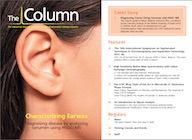The 16th International Symposium on Hyphenated Techniques in Chromatography and Separation Technology (HTC-16)
HTC-16 will be held from 29–31 January 2020 in Ghent, Belgium. This event preview offers a sneak peak of what to expect.
rudi1976/stock.adobe.com

The 16th International Symposium on Hyphenated Techniques in Chromatography and Separation Technology (HTC-16) will be held from 29–31 January 2020 in Ghent, Belgium. The symposium is organized under the auspices of the Royal Flemish Chemical Society (KVCV) in collaboration with the Royal Society of Chemistry (RSC).
The HTC-16 conference is a leading platform for state-ofâtheâart developments in separation technologies and hyphenated techniques. The conference will have three parallel sessions consisting of plenary lectures, keynote lectures, tutorials, as well as oral and posterâflash presentations. One of the parallel sessions is dedicated to emerging young scientists.
The symposium will also host an important technical exhibition where vendors present their newest instruments and developments, as well as technical seminars.
The symposium will cover a range of topics such as fundamental and practical aspects of liquidâphase and gas chromatography (GC), including ultrahighâpressure liquid chromatography–mass spectrometry (UHPLC–MS), twoâdimensional liquid chromatography (2D-LC), GC–MS, comprehensive two-dimensional gas chromatography (GC×GC)–MS, supercritical fluid chromatography (SFC), and much more. The programme will also cover sample preparation and hyphenation, advances in method development, strategies to achieve high peak capacity and highâthroughput analysis, and trends in handling complex data, data mining, and data curation. The conference will also address potential bottlenecks and describe trends and new technologies for a wide range of applications, including (bio-)pharmaceuticals, medical and clinical applications, food and beverages, environmental studies, and energy.
Outside the scientific sessions there will be abundant networking possibilities, including a beer-tasting event and a conference dinner. Plenary lectures will be given by Robert Kennedy (University of Michigan, United States); Emily Hilder (University of South Australia, Australia); Gert Desmet (Free University of Brussels, Belgium); and Pat Sandra (Research Institute for Chromatography, Belgium). Other sessions include dedicated sessions for “Innovations and Applications in Industry”, industry pitches, and an HTC YouTube contest.
Numerous awards will be presented at HTC-16. The 2020 HTC Innovation Award, which is sponsored by LCGC Europe, will be offered to a researcher below 45 years of age for “a pioneering contribution to the field of separation sciences by introducing new methodologies, new instrumentation, or new techniques in the field, with a strong focus on applicability”. The most innovative poster contributions will receive the HTC-Poster Awards.
Participants are invited to register and submit abstracts for review. All oral slots have been filled, but there is still opportunity to present posters and poster-flash presentations. Participants wishing to present a poster or poster-flash presentation should submit abstracts using the abstract submission menu available on the website.
E-mail:htc16@kuleuven.beWebsite: www.htc-16.com

The Next Frontier for Mass Spectrometry: Maximizing Ion Utilization
January 20th 2025In this podcast, Daniel DeBord, CTO of MOBILion Systems, describes a new high resolution mass spectrometry approach that promises to increase speed and sensitivity in omics applications. MOBILion recently introduced the PAMAF mode of operation, which stands for parallel accumulation with mobility aligned fragmentation. It substantially increases the fraction of ions used for mass spectrometry analysis by replacing the functionality of the quadrupole with high resolution ion mobility. Listen to learn more about this exciting new development.
Liquid Chromatography to Analyze Vitamin D Proteins in Psoriasis Patients
January 21st 2025Can a protein involved in delivering Vitamin D to target tissues have an altered serum profile in psoriasis patients with cardiovascular disease? Researchers used liquid chromatography (LC) to help find out.
The Complexity of Oligonucleotide Separations
January 9th 2025Peter Pellegrinelli, Applications Specialist at Advanced Materials Technology (AMT) explains the complexity of oligonucleotide separations due to the unique chemical properties of these molecules. Issues such as varying length, sequence complexity, and hydrophilic-hydrophobic characteristics make efficient separations difficult. Separation scientists are addressing these challenges by modifying mobile phase compositions, using varying ion-pairing reagents, and exploring alternative separation modes like HILIC and ion-exchange chromatography. Due to these complexities, AMT has introduced the HALO® OLIGO column, which offers high-resolution, fast separations through its innovative Fused-Core® technology and high pH stability. Alongside explaining the new column, Peter looks to the future of these separations and what is next to come.
A Guide To Finding the Ideal Syringe and Needle
January 20th 2025Hamilton has produced a series of reference guides to assist science professionals in finding the best-suited products and configurations for their applications. The Syringe and Needle Reference Guide provides detailed information on Hamilton Company’s full portfolio of syringes and needles. Everything from cleaning and preventative maintenance to individual part numbers are available for review. It also includes selection charts to help you choose between syringe terminations like cemented needles and luer tips.